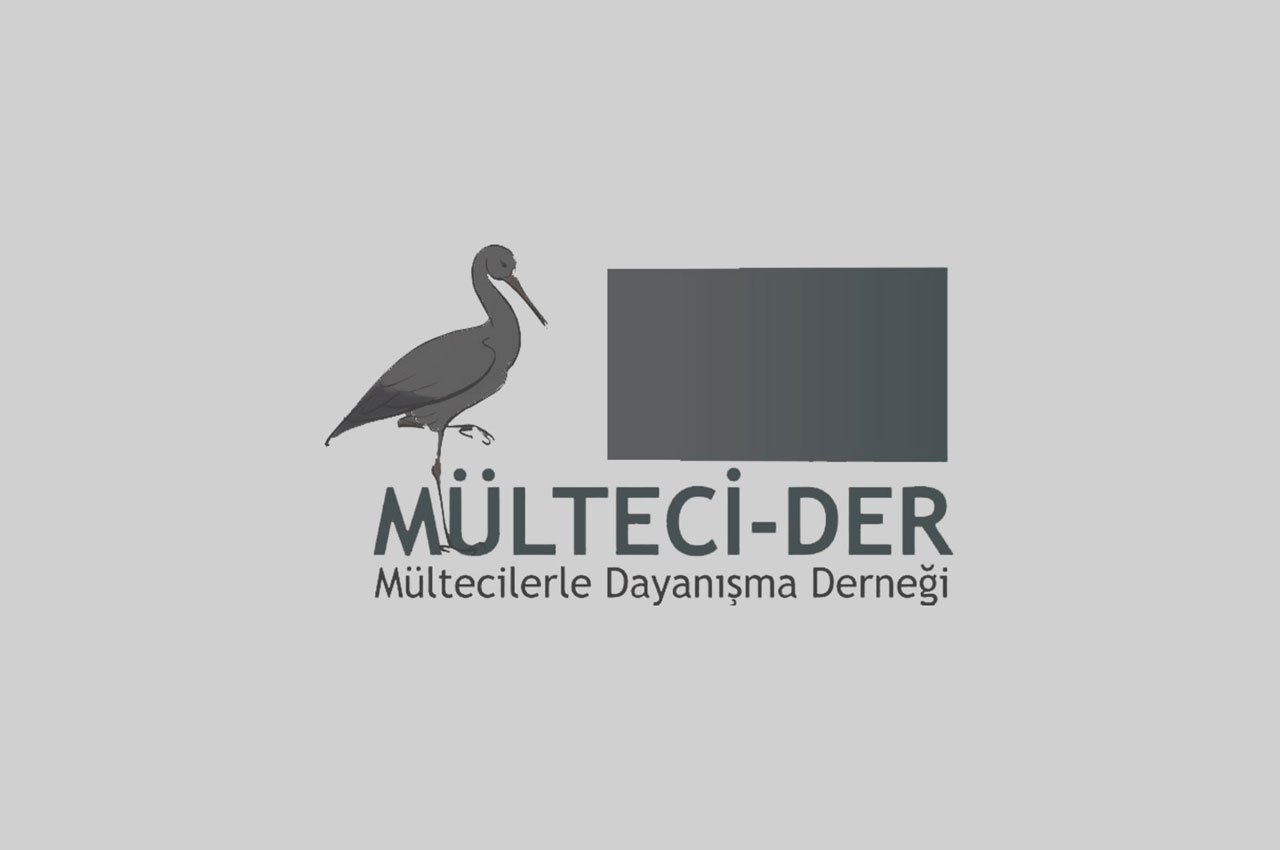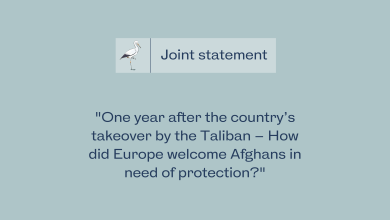
PRESS RELEASE: RIGHT TO HEALTH, CORONAVIRUS AND REFUGEES

As it is known, the Coronavirus (COVID-19) epidemic was defined as a Pandemic disease by the World Health Organization on 12.02.2020, taking into account its spread rate, and all countries were warned about testing, detecting, isolating and treating each Covid-19 case.
Before the detection of the first case in Turkey, various measures were started to be implemented to combat the epidemic. At the beginning of the recommended measures to protect from this epidemic, which is transmitted by the disease, especially through respiratory and contact, avoiding contact with the sick person and crowds, and isolation and in case of symptoms of the disease, immediately wearing a mask and taking other precautions, apply to one of the health institutions determined in each province.
Due to the coronavirus (COVID-19) epidemic, the General Directorate of Migration Management has announced that necessary measures have been taken at Provincial Directorates of Migration Management, Removal Centers, Temporary Accommodation Centers and Reception and Accommodation Centers. It has been reported that disinfection practices are carried out in the buildings, masks, gloves and disinfectants are used by the personnel, the necessary training is given to the personnel, and regulations regarding residence, international protection and other applications are made in order to reduce the density in the provincial directorates.
In this contagious epidemic period with a high rate of spread, measures are needed to cover refugees, asylum seekers and immigrants as well as all segments of the society.
However, on 06.12.2019, regarding the closure of the health insurance of international protection applicants and status holders one year after registration, and the continuation of insurance only for those who are considered to be in need of special needs, the Law on Foreigners and International Protection (YUKK) Article 89, paragraph 3, subparagraph (a). a change has been introduced. With this change, insurances of international protection holders started to be closed in various provinces of Turkey. Hundreds of thousands of people who cannot obtain a work permit, do not have a regular income, and have many physical and psychological health problems caused by forced migration, have been prevented from accessing the right to health, which is a fundamental right, and they are faced with more severe conditions and risks in the fight against the Coronavirus.
International protection status/applicants whose general health insurances were canceled with the aforementioned law amendment may not be able to access a health institution if they face a health problem including the symptoms of the Coronavirus. Such a situation may pose serious and vital risks to the person who has a health problem, as well as cause the epidemic we are currently experiencing to spread and become a public health problem. Both to ensure access to health, which is a fundamental right, and to reactivate the general health insurances of those under international protection in our country during such an epidemic period, and the amendment made in the Foreigners and International Law regarding access to health services should be urgently reversed.
As it is known, after Turkey abolished border controls on 28.02.2020, it was observed that a large number of refugees and immigrants began to accumulate, especially at the land borders with Greece. Thousands of refugees and immigrants around the Pazarkule border gate, one of the land border gates with Greece, have been waiting for twenty days in an environment where it is not possible to meet even their most basic needs such as security, shelter, healthy nutrition, cleaning and hygiene. These people, whose body resistance has decreased due to the conditions, constitute a vulnerable group for the epidemic in an environment with very limited health services. Moreover, Greece is also affected by the Coronavirus and it is known that the coronavirus has begun to be detected in the camps where refugees are located. The spread of the epidemic among this group, which is waiting at the border, can have very serious consequences, including loss of life.
In addition, refugees and migrants in refugee centers and removal centers where they are held deprived of their liberty for deportation face similar risks. Refugees live in these centers collectively and in conditions where the epidemic is likely to spread.
The General Directorate of Migration Management, in its sharing about the measures taken against the coronavirus in removal centers, stated that the release and deportation procedures of foreigners taken to the center will not take place for fourteen days and that they will be kept in a separate section in the centers during this period. It has been stated that visits to centers may be restricted if deemed necessary.
Removal centers are places where people are deprived of their liberty and it is the positive obligation of the state to protect the physical and mental health of detainees. Due to the epidemic, all precautions should be taken immediately for dermatological diseases and all other health problems, which are frequently encountered in removal centers, primarily due to the coronavirus. On the other hand, we would like to remind you that administrative detention decisions should be taken by considering alternative methods first and only in cases of absolute necessity, as a final measure.
Amendments to the Law on Foreigners and International Protection in December 2019 reduced the objection period to the deportation decision to seven days. While the seven-day limit already severely restricts the right to access justice, there will be additional problems that this may cause during the epidemic period. Measures to keep people detained in removal centers for deportation in a separate section for fourteen days due to the coronavirus and to restrict visits may make it impossible to exercise the right to appeal against the deportation decision. In order for the right of access to justice to be exercised, the seven-day limitation for appealing the deportation decision should be lifted and those who want to object as stipulated in the Law should be ensured to use this right effectively.
In the environment of the coronavirus epidemic, the principle of “Non-refoulement/Prohibition of Returns”, which is basic and does not include any exceptions, must also be followed with great care. In this context, no one should be deported to places where the coronavirus outbreak has occurred; It is necessary to ensure that people who come to our borders and in need of protection have access to the asylum system by taking the necessary health measures, and practices such as rejection or pushback at the border should be prevented.
Our call to the Ministry of Health and the General Directorate of Migration Management and all authorities in terms of access to the right to health and the measures to be taken in the face of the coronavirus epidemic, as well as the rights to access asylum and access to justice:
- With the change in the law, international protection applicants and status holders, whose general health insurance was closed, should be covered by general health insurance immediately, and refugees and asylum seekers should be informed of this situation via social media and phone messages;
- Providing necessary and adequate health services in the region for those who have been waiting for days and working at the Pazarkule border gate of Edirne province; taking urgent health measures to prevent the epidemic;
- Taking necessary measures against the epidemic and other health needs of refugees and migrants held in shelters and removal centers, providing adequate health services;
- Abolishing the time limit for objections against the deportation decision of deportees in particular, and taking necessary measures so that those who demand can use their right of objection effectively;
- Not violating the principle of “Non-Refoulement”, including access to the country, by taking the necessary health measures against the Coronavirus;
- Ensuring that foreigners who are irregularly in our country have access to the right to health, primarily health services related to the Coronavirus and basic health services;
- It is to respect the basic principles of human rights and asylum/immigration law, national and international obligations while taking health measures regarding the coronavirus epidemic.




